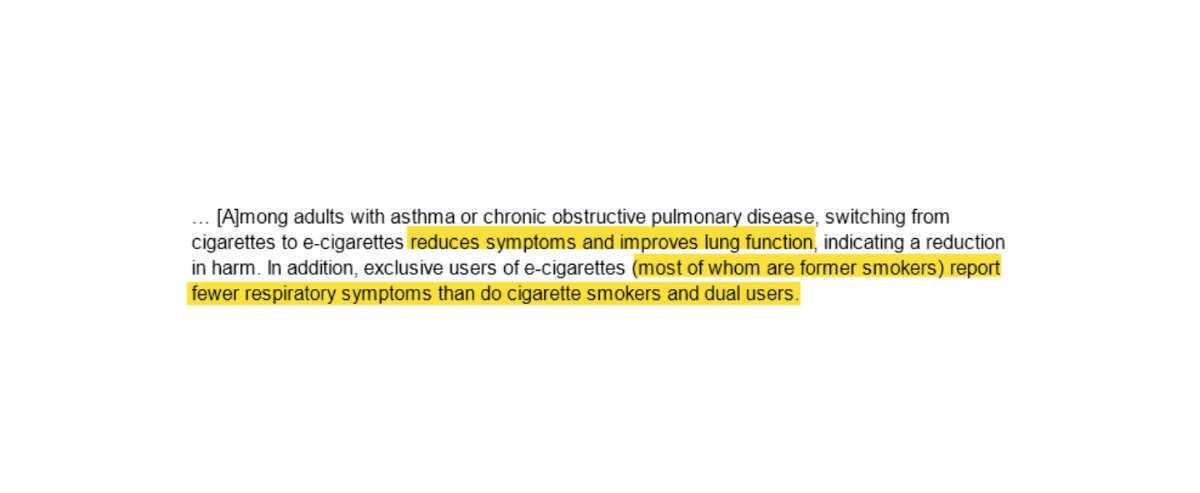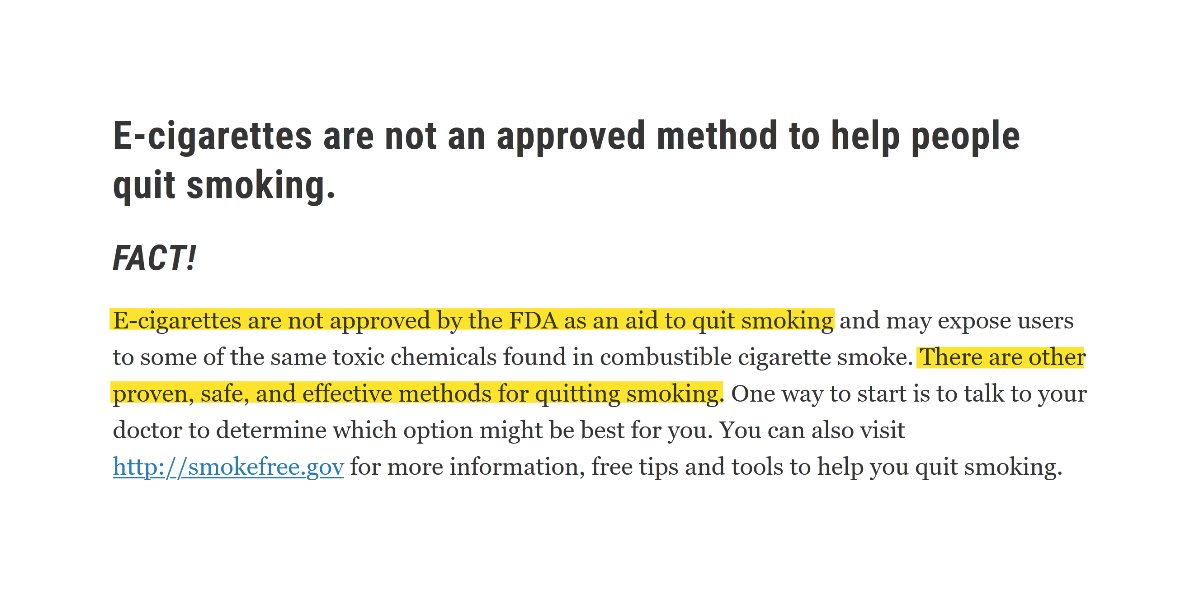Last month, we acquired a “confidential - for internal use only” FDA review of the evidence on vaping. The document covers every bit of data the agency had on health effects, teen use and smoking cessation up to March 31, 2020. THREAD 🧵 

FDA is committed to "the integrity and application of science," promises @DrCaliff_FDA. After comparing @FDA's public statements about vaping to its “confidential” analysis, it's clear to us that the agency has little integrity and even less interest in science. 

The 193-page study contains lots of qualifications and bureaucratic meandering, but it also features some stunning admissions. Below are some of the most startling excerpts, contrasted with public statements the agency made during the same period.
First up: “Dangerous chemicals” in e-cigarette vapor, from an April 3, 2019 FDA blog post. fda.gov/news-events/fd… 

Now, here’s what FDA said privately about these same “dangerous chemicals.” The two studies cited in this paragraph (Goniewicz et al., Margham et al.) were published in 2014 and 2016, respectively—long before the agency completed its 2020 review. 

But FDA knew there was no evidence linking vaping to cancer, which the National Academies of Sciences, Engineering and Medicine (NASEM) reported in 2018. That's still true today. No study has linked vaping to cancer in humans. 

It’s the same story on respiratory health. Here’s what FDA said in its April 2019 blog post on that subject. 

Compare that conclusion to the internal FDA analysis of vaping and respiratory health. Again, both conclusions are based on *the same* research. Note the summary dismissal of EVALI as a risk of nicotine vaping. 

This is also still true today, as Nature Medicine explained last month. nature.com/articles/s4159… 

Our final bombshell for today. Should vaping be used to quit smoking? Here’s what FDA told the public on March 28, 2019. fda.gov/consumers/cons… 

FDA made those assertions publicly about smoking cessation and nicotine replacement therapy (NRT) despite having this data at its disposal: 

FDA also knew that most people who vape are former smokers or smokers trying to quit. Crucially, these numbers are from studies that span 2014 to 2018. 

In sum, FDA knew:
1. That vaping is far safer than smoking.
2. That smokers prefer vapes to NRT
3. And that most people who vape are trying to or have quit smoking.
Yet as of today, they continue to discourage smokers from switching.
1. That vaping is far safer than smoking.
2. That smokers prefer vapes to NRT
3. And that most people who vape are trying to or have quit smoking.
Yet as of today, they continue to discourage smokers from switching.
There's much more to come. Until then, ponder this question: why would a public health agency, ostensibly committed to the "integrity and application of science," so badly mislead Americans about nicotine vaping?
• • •
Missing some Tweet in this thread? You can try to
force a refresh






















